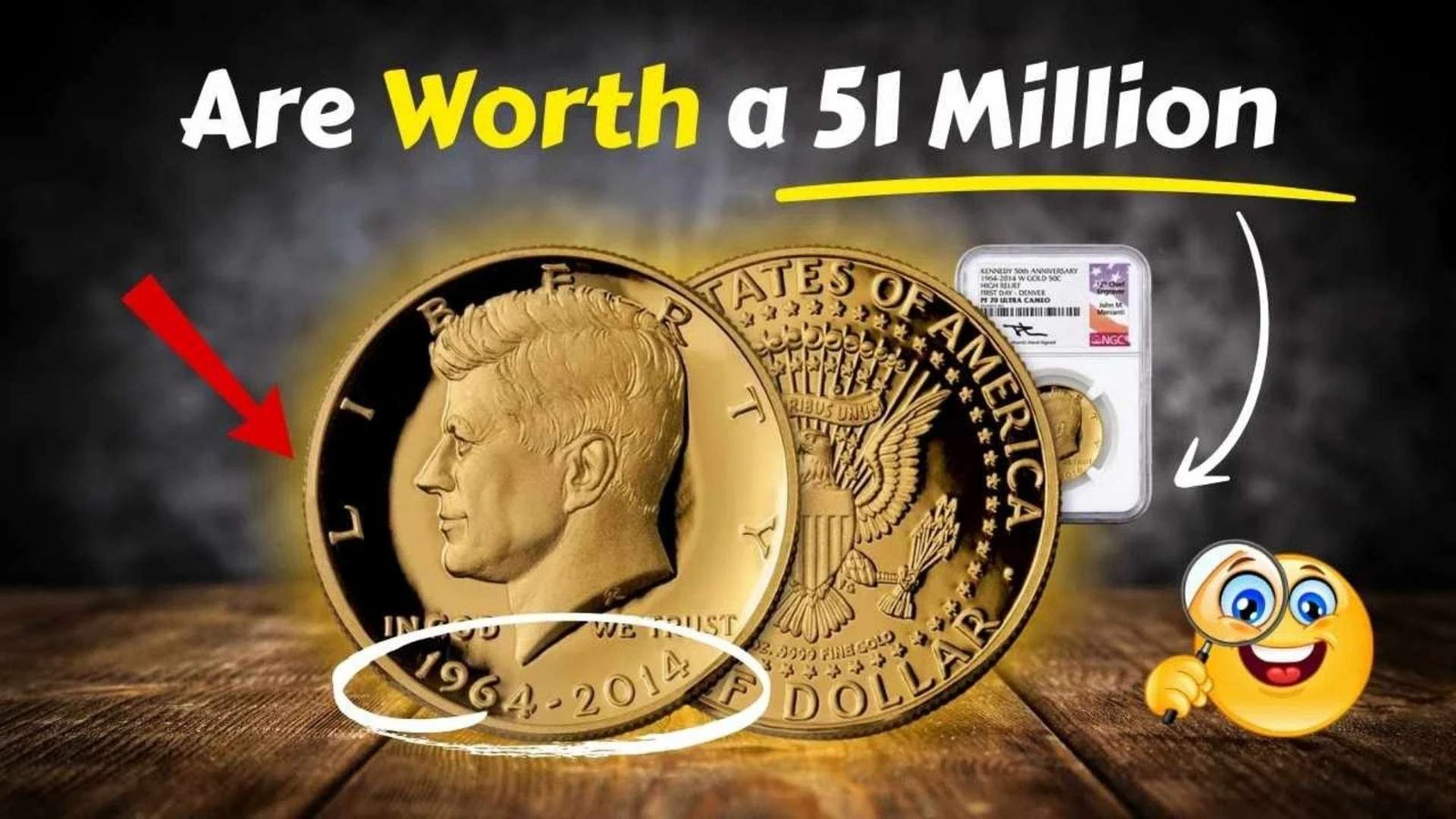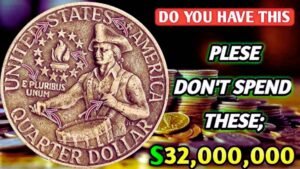What if the change in your pocket was worth more than a luxury mansion? The Kennedy Half Dollar, a humble one-cent coin, has stunned the world by being valued at an unbelievable $51 million. How can a coin most people overlook be worth more than gold? The answer lies in its rare history, mysterious errors, and legendary demand among collectors.
What Is the $51 Million Kennedy Half Dollar?
The Kennedy Half Dollar was minted from 1909 to 1958 and is instantly recognizable by the two wheat stalks engraved on the reverse. While most are worth only a few cents, a handful have unique traits — misprints, rare dates, or special compositions — that turn them into treasures. The one commanding $51 million is no ordinary coin.
A Fascinating History Behind the Kennedy Half Dollar
The Wheat Penny debuted in 1909 to honor the centennial of Abraham Lincoln’s birth, becoming the first U.S. coin to feature a real person. Designed by Victor David Brenner, the coin replaced the Indian Head cent and symbolized a new era in American coinage. Over the decades, minting changes and production errors produced rare variants that are now worth a fortune.
Key Wheat Penny Dates and Values
| Year / Variety | Estimated Value Range | Rarity Level |
|---|---|---|
| 1909-S VDB | $1,000 – $60,000 | Very Rare |
| 1943 Copper Penny | $100,000 – $2,000,000 | Extremely Rare |
| 1955 Double Die | $1,000 – $25,000 | Rare |
| The $51M Penny | Priceless / $51M | Legendary |
Why This Coin Is Worth $51 Million
So what makes this particular Lincoln Wheat Penny so valuable? Experts believe it’s a combination of:
- Ultra-rare error — A one-of-a-kind minting mistake.
- Historical significance — A pivotal year in American coin history.
- Collector demand — Wealthy investors drive prices sky-high.
Together, these factors transformed a one-cent coin into one of the most expensive collectibles in history.
How to Spot Valuable Wheat Pennies in Your Pocket
Not every Wheat Penny is worth millions, but many are valuable. Here’s what to look for:
- Check the Year — 1909-S VDB, 1914-D, and 1943 copper are among the rarest.
- Look for Errors — Double-dies, off-center strikes, or unusual coloring can boost value.
- Condition Matters — Uncirculated or graded coins sell for far more.
Wheat Penny Value by Condition
| Condition | Common Wheat Penny | Rare Error Penny |
|---|---|---|
| Circulated | 3¢ – 25¢ | $500 – $10,000 |
| Mint State (MS65+) | $5 – $50 | $50,000 – $1M+ |
| Unique / Error | $100+ | Up to $51M |
Jaw-Dropping Facts About Wheat Pennies
- More than 24 billion Wheat Pennies were minted, but only a handful are rare.
- The 1943 copper Wheat Penny is considered the “Holy Grail” of U.S. coins.
- One collector once paid over $1.7 million for a single penny at auction.
Expert Tips for Collectors
- Get Coins Graded — Certified grading from PCGS or NGC protects authenticity.
- Use Proper Storage — Acid-free holders prevent corrosion.
- Do Your Research — Join coin clubs or forums to learn from other collectors.
FAQs
Q: Can I really find a valuable Wheat Penny in circulation today?
A: Yes, though it’s rare. Some collectors still discover Wheat Pennies in change rolls.
Q: Are all Wheat Pennies valuable?
A: No. Most are worth only a few cents unless they are rare dates or mint errors.
Q: How can I sell one if I find it?
A: Coin dealers, auctions, or online marketplaces are the best options.
Conclusion: A Penny That Redefines Value
The story of the $51 million Lincoln Wheat Penny proves that even the smallest coin can hold incredible worth. While most pennies are overlooked, some carry hidden stories of history, rarity, and extraordinary value. The next time you see a Wheat Penny, take a closer look — it could be your ticket to a fortune.




